What's New
Displaying results 1051 - 1060 of 4899
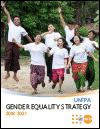
Resource | Publications,
This Strategy focuses on empowering women and adolescent girls and reaffirms UNFPA’s commitments to supporting the realization of international commitments and resolutions. It also complements the implementation of the UNFPA 2018–2021 Strategic Plan.
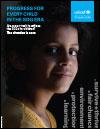
Resource | Publications,
Many children remain effectively uncounted given the limited coverage of SDG data, but this situation is improving. Between 2018 and 2019, the likelihood of a country having no or insufficient data to assess its trajectory towards a child SDG target has fallen from 62 to 56 per cent. On average, 75 per cent of child-related SDG indicators in every country either have insufficient data or show insufficient progress to meet global SDG targets by 2030. The report calls for a step change now, both in assessing the situation of children everywhere and using data to target our efforts to reach those at greatest risk of being left behind.
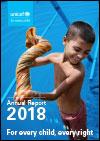
Resource | Publications,
As a record of the first year of the UNICEF Strategic Plan, 2018–2021, the report outlines efforts to protect the rights of every child, to open up new opportunities for children and young people, to become increasingly effective and efficient, and to strengthen UNICEF’s partnerships and financial stewardship.
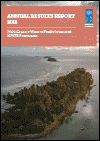
Resource | Publications,
This was the first year of the new funding cycle for the Multi-Country Western Pacific Integrated HIV/tuberculosis (TB) Programme. The three-year (2018-2020) US$11,368,713 programme is supported by the Global Fund and aims to strengthen control of HIV and TB in 11 Pacific island countries: Cook Islands, Federated States of Micronesia, Kiribati, Nauru, Niue, Palau, Republic of Marshall Islands, Samoa, Tonga, Tuvalu and Vanuatu. The United Nations Development Programme is the programme’s Principal Recipient.
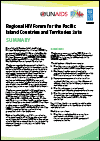
Resource | Publications,
This document summarizes the proceedings of the Regional HIV Forum for the Pacific Island Countries and Territories 2018. The forum was the first event of its kind in the Western Pacific, bringing together people living with HIV and health care workers from across the region to meet, discuss and share their experiences working with and living with HIV. It provided a platform for open dialogue for both groups, enhancing HIV and antiretroviral therapy literacy, and self-empowerment, while aiming to catalyse coordination across HIV care, treatment and prevention programmes in the Pacific islands.
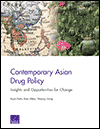
Resource | Publications,
Countries in Asia have typically addressed illicit drug supply and use with harsh punishments, including compulsory treatment and the death penalty. The region has long espoused the goal of creating a drug-free society, a goal that has been abandoned in other parts of the globe for being infeasible.
Like many other places in the world, there are emerging discussions in Asia about policies to reduce drug use and trafficking. This report aims to help inform policymakers and the public by describing the illicit drug situation for selected Association of Southeast Asian Nations + 3 countries (China, Japan, and South Korea).
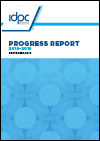
Resource | Publications,
The drug policy reform movement continues to strengthen and diversify with many new players joining the calls for a serious re-think of repression and punishment as instruments of drug control. Repressive drug control measures are increasingly being understood as a form of state violence that serves to deepen and entrench structural inequalities which has garnered stronger interest in challenging current drug policies from other social movements such as those working on racial inequality, women’s rights, indigenous rights, LGTIQ+ rights to prison abolition and beyond. Building cross-movement solidarity on key human rights and social justice issues is more important than ever in the current troubling geo-political context and will be a core focus of the IDPC Secretariat in the coming years.
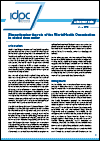
Resource | Publications,
In this advocacy note, IDPC discusses the WHO’s strategic role in drug policy, including progress made and ongoing gaps and challenges, and calls on the WHO and its governing bodies to engage in a more progressive and systematic way in various aspects of global drug policy to ensure more coherence with the UN system on drug policy, health, human rights, and the achievement of the Sustainable Development Goals.
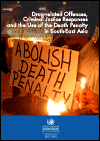
Resource | Publications,
This report is based on a desk review of United Nations and open-source material on the death penalty, including OHCHR studies and United Nations resolutions and human rights mechanisms. It builds on material from the 2018 Bangkok seminar. This report also presents recent global trends in death penalty and drug-control matters, a summary of the applicable international human rights norms and standards, and recent developments in legislation and criminal justice responses related to the death penalty and drug control in South-East Asia.
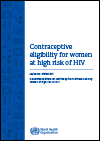
Resource | Publications,
The World Health Organization (WHO) convened a Guideline Development Group (GDG) meeting from 29 to 31 July 2019 to review global guidance on contraceptive eligibility for women at high risk of HIV acquisition to and determine whether revisions to the fifth edition of the Medical eligibility criteria for contraceptive use (MEC) were needed. The issue was deemed critical, particularly for sub-Saharan Africa, given the high lifetime risk of acquiring HIV alongside the importance of hormonal contraception in offering women and adolescent girls’ choice and in reducing their risk of unintended pregnancy, a common threat to the health, well-being and lives of women and adolescent girls.





